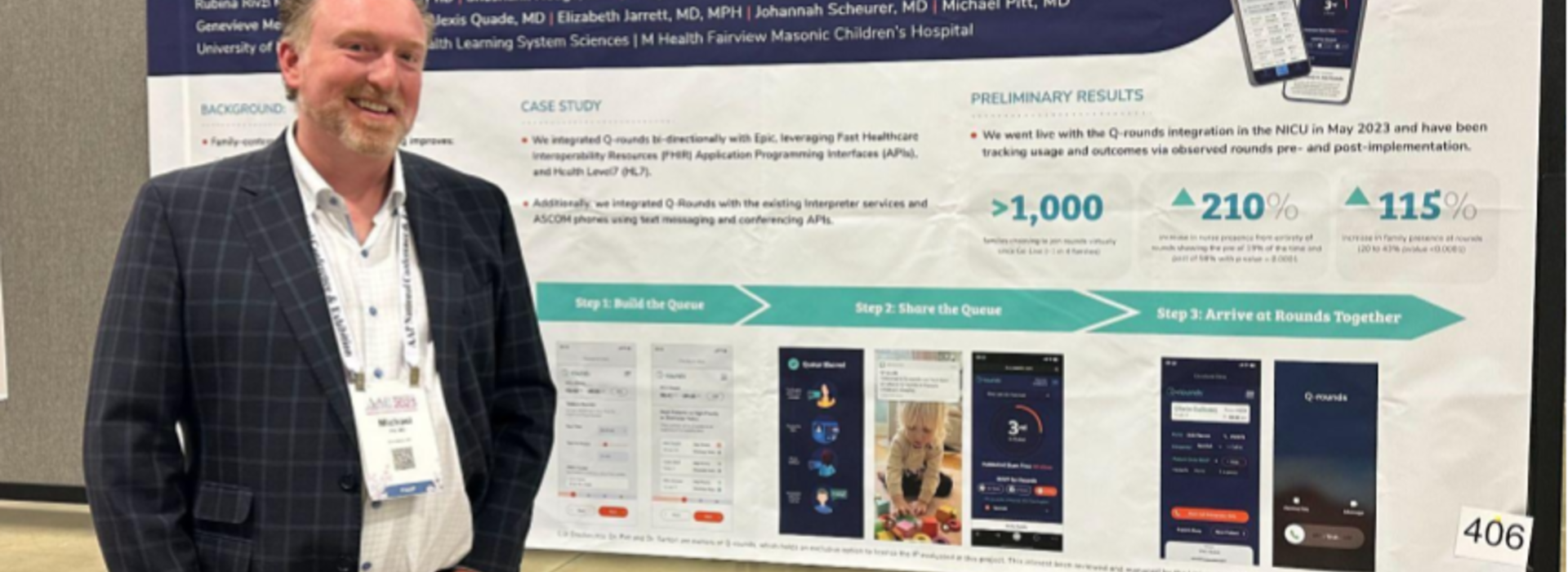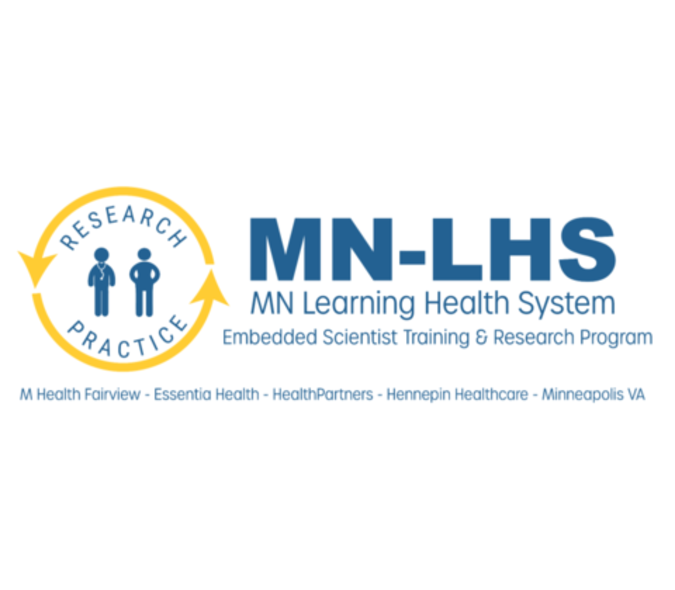
Q-Rounds Poster Abstract Recognized at AAP National Conference
Q-rounds and the University of Minnesota Center for Learning Health and Systems Sciences received recognition at the American Academy of Pediatrics National Conference and Exhibition in Washington, DC. Their pioneering work on reimagining healthcare through technology was honored with a prestigious award winning best in show poster presentation from the American Academy of Pediatrics Council on Clinical Informatics and Technology (COCIT).
The award-winning abstract, titled "Integration of an Innovative Technology for Multidisciplinary, Family-Centered Rounding in a Neonatal Intensive Care Unit," was presented at the conference by Dr. Michael Pitt, MD - Professor of Pediatrics at the University of Minnesota, and Co-founder and CEO of Q-rounds. This abstract highlighted the successful integration of the Q-rounds virtual rounding queue within the existing technologies within the M Health Fairview Masonic Children's Hospital Neonatal Intensive Care Unit (NICU).
Q-rounds is a virtual queue software that provides real-time notifications to patients, families, nurses, and stakeholders, informing them of when to expect the healthcare team for rounds. It also offers families the option to join rounds remotely, ensuring their involvement even when they cannot be there in person.
Our Digital Technology Innovation Program, led by Dr. Rubina Rzvi as primary investigator, collaborated with Q-rounds co-Founders, Dr. Michael Pitt from the Department of Pediatrics and Dr. John Sartori from the College of Science and Engineering to pilot Q-rounds at the M Health Fairview Masonic Children’s Hospital NICU.
Preliminary results of the pilot implementation include significant increases of nurse and family presence at rounds. Nurse presence for the entirety of rounds nearly tripled and family member presence increased more than two-fold post Q-rounds implementation. The teams are excited about these results given the known benefits of nurse and family presence during rounds on improved patient outcomes.
The team is preparing to submit three publications that describe the impact of Q-rounds based on in person observations and survey data, as well as a description of the systems integration required for Q rounds success.



